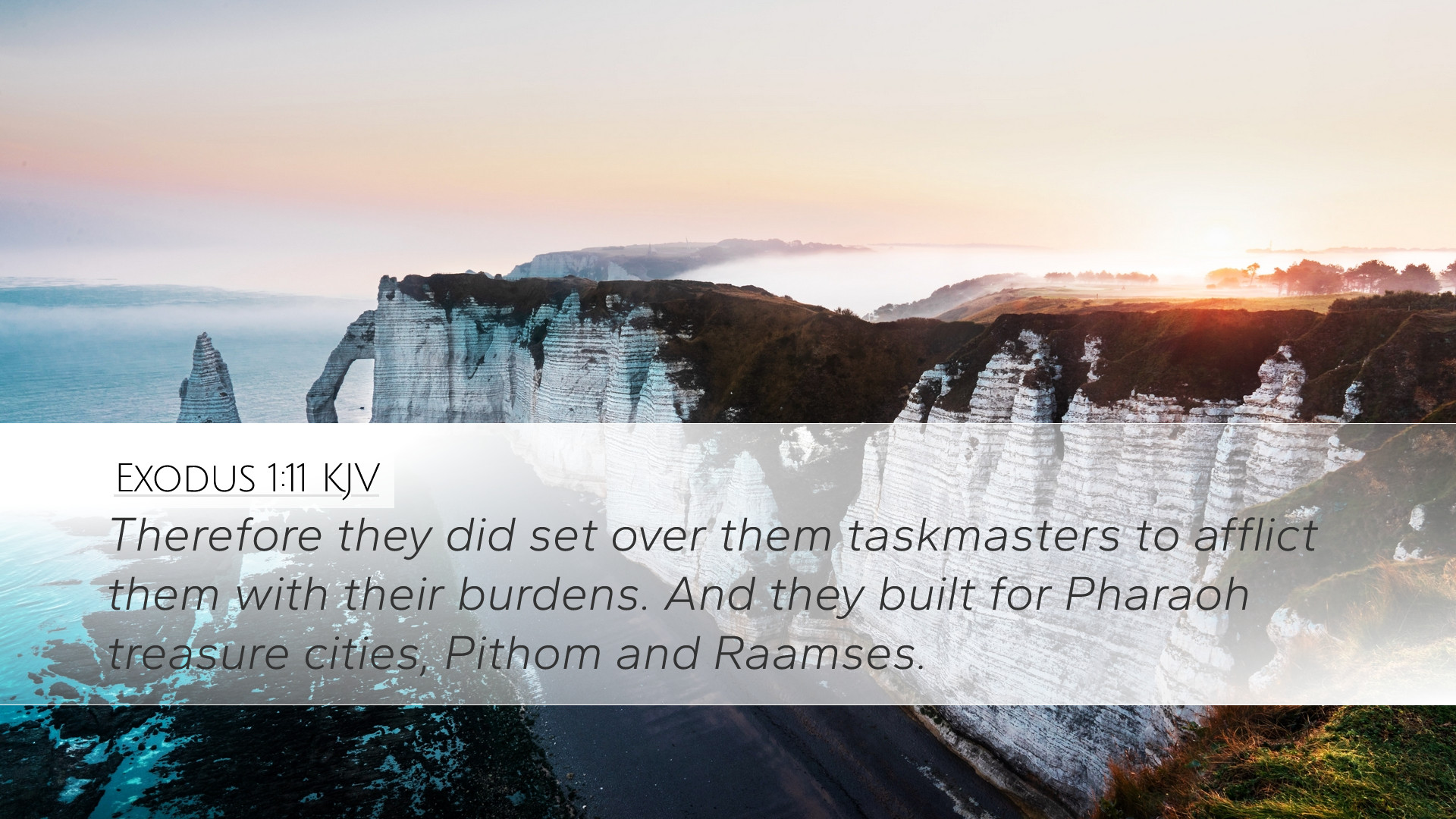Exodus 1:11 Commentary
Verse: Exodus 1:11
"Therefore they did set over them taskmasters to afflict them with their burdens. And they built for Pharaoh treasure cities, Pithom and Raamses."
Introduction
The context of Exodus 1:11 is crucial for understanding the plight of the Israelites in Egypt. As the Hebrew population grew, the reigning Pharaoh, fearful of their potential power, decided to oppress them. This verse marks a significant shift from the favor the Israelites once enjoyed in Egypt during the time of Joseph, to a period of enslavement and harsh treatment.
Summary of Insights
- Oppression as a Response to Growth: Matthew Henry notes that the growing number of Israelites alarmed the Egyptians. Their fears prompted the Pharaoh to act, illustrating a fundamental principle of oppression in human history: fear often breeds tyranny.
- Taskmasters and Burdens: Albert Barnes emphasizes the role of taskmasters in enforcing labor. The term signifies not just physical labor but emotional and spiritual oppression, serving as a broader metaphor for sin's burden on humanity.
- Building Treasure Cities: Adam Clarke elaborates on the significance of the cities Pithom and Raamses, which were built as storehouses for Pharaoh. This highlights exploitation, where the labor of the Israelites was used to bolster the wealth and power of the Egyptian empire.
Theological Implications
The verse holds deep theological significance regarding suffering and God’s providence. As God’s people face oppression, this sets the stage for their eventual deliverance, which is a recurring theme throughout Scripture.
1. The Test of Faith
This verse reflects the trials that often accompany God's people. Henry stresses that trials serve to refine faith and ultimately reveal God’s deliverance. For contemporary believers, the experience of affliction may serve as a reminder of their need to rely on God’s strength.
2. The Justice of God
The oppression of the Israelites is a precursor to God's judgment on Egypt. Barnes points out that God's justice prevails in the end. It serves as a reminder that while the wicked may prosper for a time, God's judgment ultimately brings about justice. This bears relevance for believers, encouraging them to trust in God's righteous character.
3. A Foreshadowing of Christ
The enslavement of the Israelites can be seen as a foreshadowing of humanity's bondage to sin, as Clarke notes. Just as God delivered Israel from Egypt, so through Christ, believers are delivered from sin and its penalties. This connection elevates the narrative beyond historical events to encompass the broader plan of redemption found in Christ.
Practical Applications
Pastors, students, and theologians can draw practical lessons from this verse:
- Endurance in Trials: Believers are reminded that trials are not extraneous to God's plan. They are oftentimes instruments for deeper growth and reliance upon God.
- Social Justice: The exploitation of the Israelites calls for modern Christians to advocate against injustices and stand in solidarity with the oppressed.
- The Sovereignty of God: Despite appearances, God is at work behind the scenes. This encourages believers to trust in His timing and methods in their own lives.
Concluding Thoughts
Exodus 1:11 serves as both a historical account and a spiritual lesson. It highlights the cruel realities of human oppression while simultaneously pointing towards God’s redemptive work. This duality should inspire believers towards both action against injustice and faith in God's ultimate victory.


